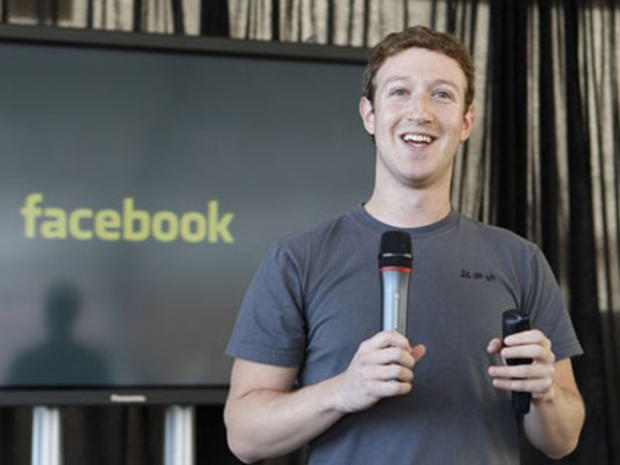Facebook: E-Mail Past its Prime and We've Got Something Better
Facebook inched closer toward realizing its goal of being at the center of peoples' Internet lives with the announcement Monday of a unified messaging service that combines aspects of e-mail, instant messaging and SMS.
Facebook's system takes aim at traditional e-mail, though that was just one facet of the new service. The offering brings together peoples' conversation history - IMs, text messages and emails - into a single thread.
Describing the genesis of the project, CEO Mark Zuckerberg said traditional e-mail was showing its age, weighted down by "friction and cognitive load." In an age punctuated by texts and instant messages, he said the new Facebook service will facilitate faster, shorter, and more real-time forms of messaging.
"We don't think a modern email system is going to be email," said Zuckerberg, adding that email was "too slow" and "too formal."
To the degree that Facebook succeeds, it would further enhance its increasing popularity as an Internet platform. It was only circumstance but Facebook's announcement fell on the same day that its valuation was reported to be around $41 billion, moving past EBay to become the third most valuable Internet business.
Not an E-Mail Killer? E-mail is just one of several ways that people communicate with each other. Around 350 million people actively use messages on Facebook and more than 4 billion messages get sent each day through the company's systems - the vast majority being simple chat.
"This is not an email killer," Zuckerberg said, alluding to the frenzy of speculation that Facebook had been preparing a "Gmail killer. He said that Facebook's engineers had been working for the last 15 months on a communications system that would work across the different forms of communication in use today.
"This is a messaging system that includes email as one part of it," he said.
"The system is definitely not email," added Facebook's director of engineering Andrew Bosworth. "We've actually modeled it after chat.
In addition to offering what it called "seamless messaging" as well as full conversation histories, Facebook is including what it describes as a social inbox making use of the company's social contacts, offering what it says will be filters to make sure users receive messages from people they truly care about. The social inbox will rank messages in terms of priority of importance pegged to a user's history of messages based on conversation histories. The Facebook service will also give users the choice to only receive messages at their Facebook.com addresses.
Text messaging has become the primary form of communication for U.S. teens, according to a 2009 survey from the Pew Internet & American Life Project. By contrast, e-mail use was the lowest - 11 percent of teens said they use it every day to interact with friends, compared with 54 percent who said they text daily and 30 percent who said they use landline phones.
The announcement is likely to ripple through what already was a fiercely competitive market. For companies like Yahoo, Microsoft, and AOL, getting users to use their respective email services is a big deal. They use email as a launching point to drive Web traffic to their other properties.
Facebook and Google already compete for Internet users' eyeballs and the advertising dollars that follow them. Google's Gmail service has enjoyed sharp growth while other email services have suffered declining market share. The move by Facebook, which already has around half a billion users, is likely going to accelerate that trend.
The offering will be rolled out slowly over the next few months.
Advance Buzz
After Facebook sent out e-mailed invitations last week with the tease, "please join us for an invite-only event," blogs buzzed with speculation about the announcement of an e-mail service, which would be an answer to Google's Gmail. That's in part because the invite was reminiscent of the old-school, red, white and blue "air mail" envelopes. The event came a day before Zuckerberg speaks at the Web 2.0 Summit in San Francisco.
The speculation caught the attention of the big Web e-mail providers. Over the weekend, AOL offered preview of its e-mail revamp
